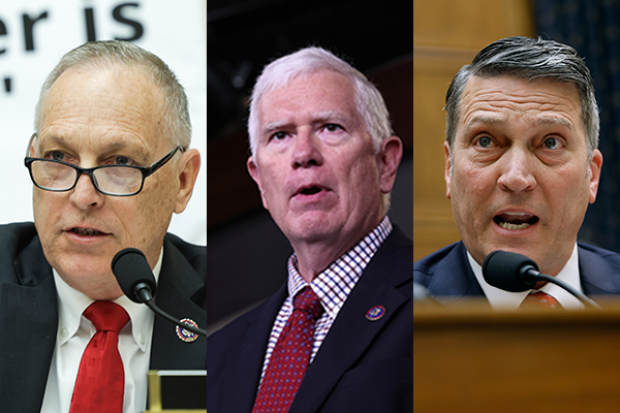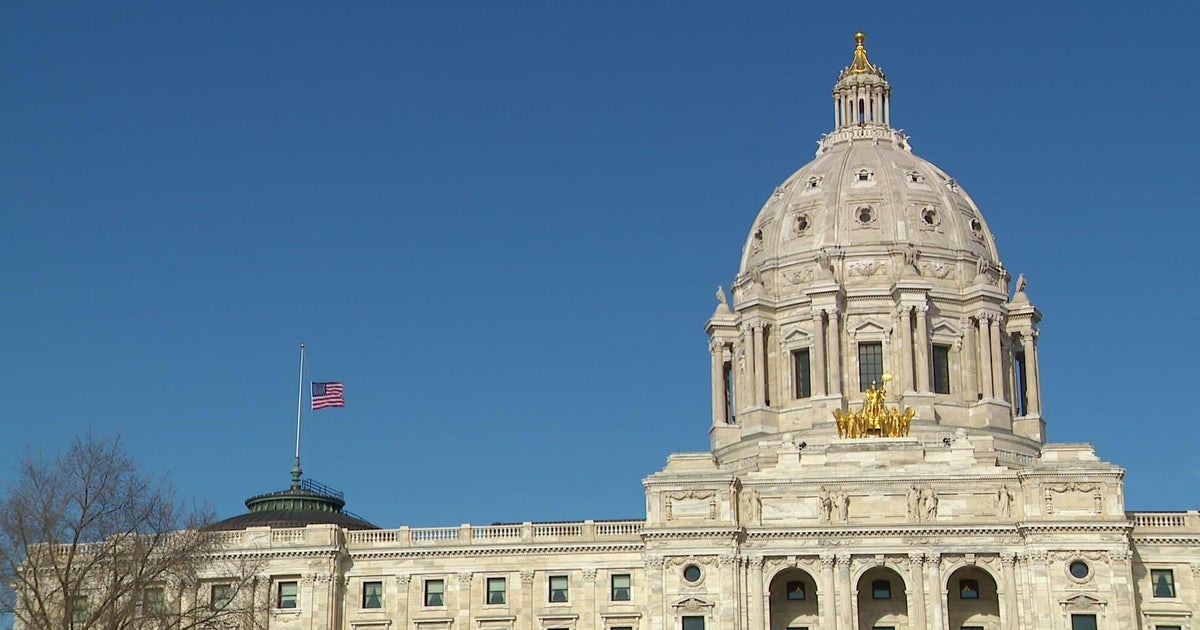Jan. 6 committee requests interviews with 3 more House Republicans
Washington — The House select committee examining the Jan. 6 siege at the U.S. Capitol is seeking information from three Republicans in Congress it believes were either involved with or have knowledge of the events surrounding the Capitol assault.
Committee Chairman Bennie Thompson and Vice Chair Liz Cheney sent letters to GOP Reps. Andy Biggs of Arizona, Mo Brooks of Alabama and Ronny Jackson of Texas seeking voluntary interviews from each and said in a statement they consider it a "patriotic duty" for witnesses to cooperate. All three said they would not cooperate with the panel.
"The select committee has learned that several of our colleagues have information relevant to our investigation into the facts, circumstances, and causes of January 6th," Thompson, a Mississippi Democrat, and Cheney, a Wyoming Republican, said, adding, "We urge our colleagues to join the hundreds of individuals who have shared information with the select committee as we work to get to the bottom of what happened on January 6th."
In addition to Biggs, Brooks and Jackson, the committee has already asked House Minority Leader Kevin McCarthy and Republican Reps. Jim Jordan of Ohio and Scott Perry of Pennsylvania to cooperate with their investigation. But Jordan and Perry have rebuffed the panel's requests to voluntarily provide information about events regarding the Jan. 6 attack.
The committee has not said whether it will issue subpoenas to the GOP lawmakers to compel them to provide information, and Rep. Adam Kinzinger of Illinois, the only other Republican on the panel, told "Face the Nation" on Sunday that whether to move forward with subpoenas will be a "strategic, tactical decision" and a question of whether House investigators can get the information they're seeking in time.
The select committee is poised to begin the next phase of its investigation with a series of eight hearings in June, the first of which is expected to be June 9, Thompson told reporters last week.
In their letters to Biggs, Brooks and Jackson, Thompson and Cheney noted that the select committee has "tremendous respect for the prerogatives of Congress and the privacy of its Members. At the same time, we have a solemn responsibility to investigate fully the facts and circumstances of these events."
Their request to Biggs noted he participated in meetings at the White House and remotely regarding planning for Jan. 6, including on the strategy for Vice President Mike Pence to reject electoral votes from key battleground states that former President Donald Trump lost in the 2020 presidential election. The committee also cited public statements from Ali Alexander, a Stop the Steal rally organizer, claiming that Biggs and two other House members had the idea to bring protesters to Washington on Jan. 6, when lawmakers were convening for a joint session to count state electoral votes and reaffirm President Biden's win.
The committee leaders further said they have information about Biggs' alleged efforts to convince state officials the 2020 election was stolen and to seek their help with Trump's efforts to overturn the election. They also revealed that former White House staff identified an effort by some House Republicans after the January 6 insurrection to seek a presidential pardon for activities tied to Trump's campaign to reverse the election outcome, and Biggs was named as a potential participant.
"We would like to understand all the details of the request for a pardon, more specific reasons why a pardon was sought, and the scope of the proposed pardon," Thompson and Cheney wrote.
But Biggs said he would not participate in the committee's investigation and claimed its members have flipped the presumption of innocence on its head.
"The committee has been a sham since its origins," he said in a series of tweets. "Its entire purpose is to destroy President Trump and his supporters, intimidate members of Congress, and distract Americans from real issues that are destroying this country."
In their letter to Brooks, who spoke at the rally outside the White House before the Capitol breach, the select committee leaders said they are seeking information regarding conversations the Alabama Republican had with Trump about reversing the election results and keeping him in power.
"As you know, the committee is examining a series of efforts by President Trump to abandon his solemn duty to support and defend our Constitution," they told Brooks, citing recent public statements by him. "The exchange you have disclosed with the former President is directly relevant to the subject of our inquiry, and it appears to provide additional evidence of President Trump's intent to restore himself to power through unlawful means."
Brooks said he would have voluntarily testified before the committee "at one time" if his appearance were public and he were questioned by members of Congress about events related to Jan. 6, but "that time has long passed." He also vowed that if the committee subpoenas him for testimony, he will fight it.
"I wouldn't help Nancy Pelosi and Liz Cheney cross the street — I'm definitely not going to help them and their partisan Witch Hunt Committee," he said in a statement. "I've already given numerous sworn affidavits and public statements about January 6. At this moment in time, right before an Alabama U.S. Senate election, if they want to talk, they're gonna have to send me a subpoena, which I will fight."
The request from the committee to Jackson, who served as the White House physician before he was elected to Congress in 2020, focuses in part on text messages exchanged by members of the Oath Keepers, a far-right group, on January 6 that mentioned him by name. The founder of the Oath Keepers, Stewart Rhodes, and 10 others were charged in January with seditious conspiracy for their alleged roles in the January 6 attack.
In one message, an Oath Keepers member said Jackson needed their help, while another message said he "needs protection" and claimed "he has critical data to protect." In response to the message the Jackson needed protection, Rhodes told an unidentified Oath Keepers member to "give him my cell." The encrypted messages were included in filings from the Justice Department as part of the criminal proceedings.
"It is evident from the exchange above that the individuals believed the violence in the Capitol would threaten the lives and safety of members of Congress. And the exchanges above raise several specific questions for you: Why would these individuals have an interest in your specific location? Why would they believe you 'have critical data to protect?' Why would they direct their members to protect your personal safety? With whom did you speak by cell phone that day?" Thompson and Cheney wrote to Jackson.
They also noted that on January 6, before the assault, Jackson posted photographs from the rally at the Ellipse to Twitter and messages of support to Trump. The committee said it wants to speak with Jackson about how and when he returned to the Capitol from the Ellipse and contacts he had with rally participants. They also want to record Jackson's "firsthand observations" of the time during which the House chamber was barricaded as protesters attempted to reach the House floor, the letter stated.
Jackson said in a statement he will not meet with House investigators and criticized the select committee, calling its agenda "malicious and not substantive." The Texas Republican also said he did not know or have contact with the Oath Keepers who exchanged messages about him on January 6.
"The committee's witch hunt against me is nothing more than a coordinated attempt to do the media's work on taxpayers' dime," he said. "Their attempt to drag out a manufactured narrative illustrates why the American people are sick of the media and this partisan committee's use of January 6 as a political tool against conservatives they do not like."
Over the course of its investigation into the events leading up to the assault and the riots themselves, the committee has conducted at least 935 interviews and depositions and received nearly 104,000 documents.




